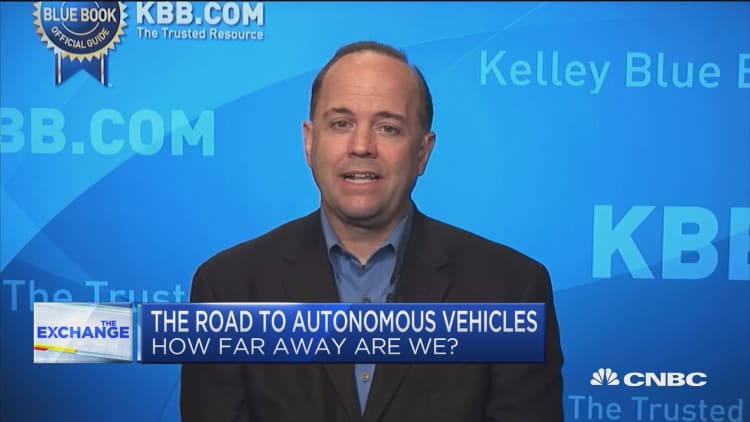
At least one auto industry analyst is skeptical about Tesla CEO Elon Musk's bold claim that the electric car maker will have all the features necessary for full autonomy by the end of the year.
In fact Musk may be misleading the public over how capable Tesla's cars are, said Karl Brauer, executive publisher at Cox Automotive, on CNBC's "The Exchange" on Wednesday.
"I think the term 'misled' works here. I mean, there are so many variables out there," he said. "There are so many different ways that a car has to be able to deal with driving: weather, lighting, traffic, pedestrians, bicyclists. To say you'll have all conditions solved in the next 12 to 18 months, nobody else is making that claim and there are some pretty big companies out there like Google who are doing this and have been doing this for a decade."
Musk made his claims about Tesla's progress in self-driving cars in an interview with Cathie Wood and Tasha Keeney of ARK Invest, a group of funds that has positions in Tesla. He said he expects Tesla to have all the features necessary for fully self-driving cars by the end of the year, and to be capable of safely transporting a sleeping passenger in an autonomous vehicle within two years.
"Elon's got one of the best systems currently available in terms of semi-autonomous driving," Brauer added in an email to CNBC. "But the concept of any car handling all the variables that exist on the road is still hard to fathom. Doing it in the next 12-18 months seems impossible."
On Tuesday's podcast, Musk did say that having all the features necessary did not mean "now it works with 100 percent certainty, requiring no observation, perfectly." He added that regulators will play a big role in determining how these technologies are used and how reliable they will have to be.
Tesla has long offered automated driver assistance technology with its cars through a system called Autopilot. Tesla has apparently been trying to pursue fully self-driving cars, albeit in ways that are very different from competitors.
Musk has famously, and controversially, insisted the laser infrared technology lidar so favored by the vast majority of competitors is not necessary for full self autonomy. The electric car maker also uses very different methods from most of its rivals for testing the technology.
Musk also has a reputation for making big claims about how far along Tesla is in terms of certain aspects of its business, such as how quickly it is developing a given technology or producing cars. Musk has said some of his predictions are rough estimates.
"Elon Musk's established history of predictions plays into his latest claims," Brauer said. "He's missed these kind of predictions in the past, so people shouldn't be surprised he's willing to make them again, or that they might be unrealistic. The current AutoPilot technology is among the most advanced available, but it's nowhere near full self-driving under all conditions. Getting there by the end of this year, or even the end of next year, feels out of scope, but I guess we'll see."
Tesla declined a request for comment.


